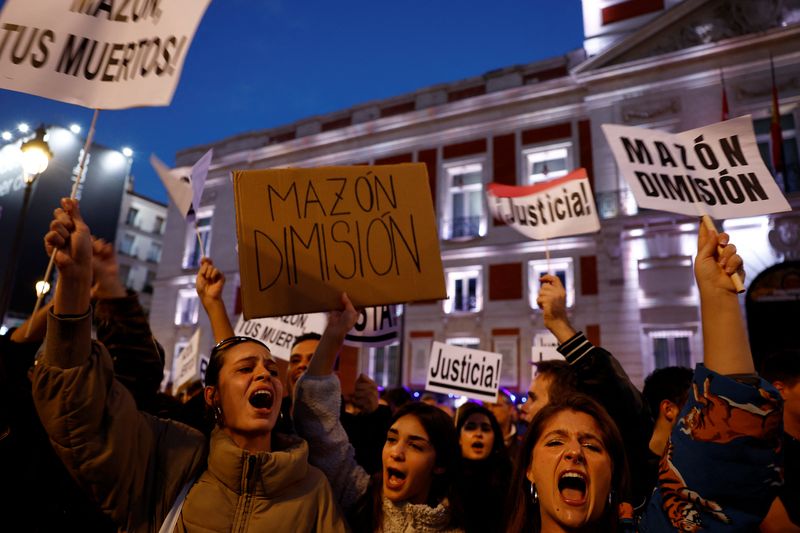By Graham Keeley
VALENCIA (Reuters) – Tens of thousands of people demonstrated in the eastern Spanish city of Valencia on Saturday over regional authorities' handling of devastating floods that killed more than 220 people in one of Europe's worst natural disasters in decades.
During the latest demonstration over the floods, demonstrators filled the center of Valencia demanding the resignation of regional government leader Carlos Mazon and chanting “Killers!”.
“Our hands are smeared with mud, yours with blood,” read one banner. Some protesters threw dirty boots outside the government building, while others smeared it with mud.
Residents of the affected areas accuse Mazon of warning too late, at 8 p.m. on October 29, long after water had already flowed into many nearby towns and villages.
The Valencian leader has said he would have raised the alarm sooner if authorities had been informed of the seriousness of the situation by an official water monitoring body. Mazon did not respond to Reuters' requests for comment.
“We want to express our outrage and anger at the poor management of this disaster that has affected so many people,” said Anna Oliver, president of Accio Cultural del Pais Valenciano, one of about 30 groups that organized the protest.
Although the demonstration was largely peaceful, at one point police attacked stone-throwing protesters and objects hurled at city hall caused minor damage.
After days of storm warnings from the National Weather Service from October 25, some municipalities and local authorities sounded the alarm much earlier than the regional government.
For example, on October 28, the University of Valencia told its staff not to come to work. Several town halls have suspended activities, closed public facilities and ordered people to stay at home.
Weather service AEMET raised the threat level for heavy rainfall in the area to red alert at 7.36am on October 29.
Nearly 80 people are still missing in what is the deadliest deluge in a single European country since the 1967 floods in Portugal killed around 500 people.
(Reporting by Graham Keeley, Horaci Garcia, Ana Beltran, Eva Manez and Michael Gore; Editing by Andrew Cawthorne)

